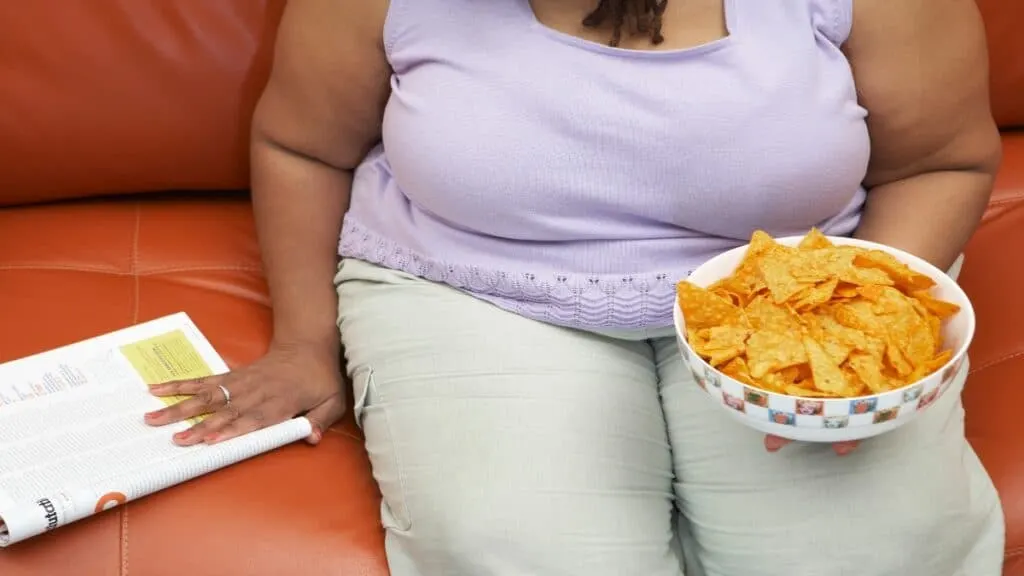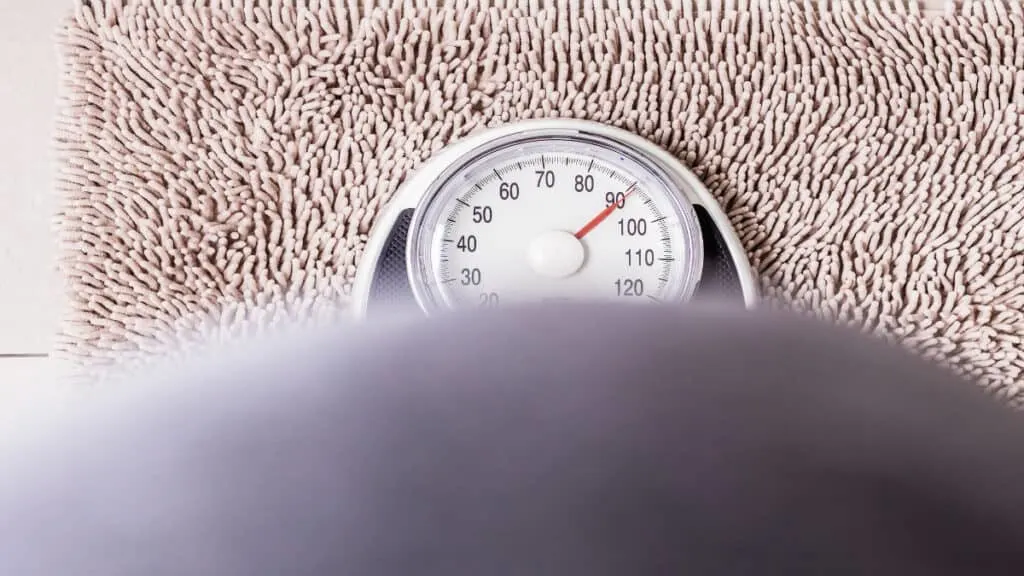This guide will explain what it means to have a BMI of 50 in terms of physical health and appearance.
While it’s true that two BMI 50 individuals can look very different (because BMI is based on height), anyone with a 50 BMI clearly has too much body fat and needs to lose weight in order to improve their health and reduce their disease risk.
Related BMI Guides:
- What should my BMI be for my age?
- BMI 49
- BMI 51
- BMI 52
- BMI 53
- BMI 54
- BMI 55
- BMI 56
- BMI 57
- BMI 58
- BMI 59
Is a BMI of 50 bad?

Is a BMI of 50 bad? Yes, having a BMI of 50 is bad for your health because obesity is associated with diseases and health problems like diabetes, heart disease, stroke, and certain types of cancers.
Having a body mass index of 50 may also create smaller everyday health struggles, such as back pain and insulin resistance, which can be improved by losing weight and lowering your BMI.
A male or female who has a BMI of 50 has a body mass index score that’s over 20 BMI points higher than average. Because of this, a body mass index of 50 is categorized as class 3 obesity by the World Health Organization.
Ultimately, while you shouldn’t berate yourself for having a particular body shape, it’s also important to realize that you need to bring your weight under control soon if you have a 50 BMI.
How much does a BMI 50 person weigh?

Given that people can have the same BMI while being of different heights, we can’t say specifically how much a BMI 50 individual will weigh.
Most people with a BMI of 50 will weigh well over 200 lbs, and some will be heavier than 300 lbs. It really does depend on your height.
Taller individuals with a BMI of 50 will weigh more than shorter people who have a BMI of 50.
That said, we can make a general statement; because a 50 BMI is much higher than average, people with a body mass index of fifty will always weigh much more than usual for a person of their height.
What does it mean if you have a BMI of 50 or higher?

If you have a BMI of 50 or higher, then it means that you’re severely obese and might be putting your health at risk by maintaining such a high body mass.
As noted, obesity is linked with dangerous health conditions such as diabetes, high cholesterol, high blood pressure, and stroke.
While no BMI is a guarantee of getting certain diseases or suffering from particular health problems, being severely obese (BMI 50 is 10 points into the severely obese category) does increase your risk of ill health.
Yet, since having a 50 BMI is so bad, this logically means that you can see a big improvement in your health by losing weight.
Make sure to consult a doctor before you start attempting to lose weight so that they can give you a health check-up and rule out any underlying conditions that could make exercise unsafe.
What is the life expectancy of a person with a 50 BMI?

It’s not possible to give a life expectancy for a person with a BMI of 50 because health is not measured by your body mass index score.
Your overall weight and body size influence your life expectancy, with lighter, shorter people tending to live longer.
All we can say is that being obese increases your risk of disease. Without a proper health consultation from a medical professional, there’s no way of knowing for certain what specific damage you’re doing to your health by having a BMI of 50.
Conclusion: How can men and women reduce a body mass index of 50?
As you may have heard before, losing weight and reducing a BMI of 50 boils down to putting your body in an energy deficit, which means limiting your calorie intake and increasing your activity level.
The specifics depend on your current situation and are best discussed with a dietician. But let me give you some ideas of what to talk about.
The calorie deficit is the most important part of the weight loss equation because eating fewer calories will help you to reduce your 50 BMI.
Initially, your dietician may suggest a fairly aggressive calorie deficit so that you can get to a healthier body weight as quickly as possible.
You may also be encouraged to perform simple daily exercises, such as walking around the block, which will help to further boost your calorie expenditure.
References
- A healthy lifestyle – WHO recommendations. (2010, May 6). https://www.who.int/europe/news-room/fact-sheets/item/a-healthy-lifestyle—who-recommendationsCopy to clipboard
- Rahman, M., & Berenson, A. B. (2010). Accuracy of current body mass index obesity classification for white, black, and Hispanic reproductive-age women. Obstetrics and gynecology, 115(5), 982–988. https://doi.org/10.1097/AOG.0b013e3181da9423

